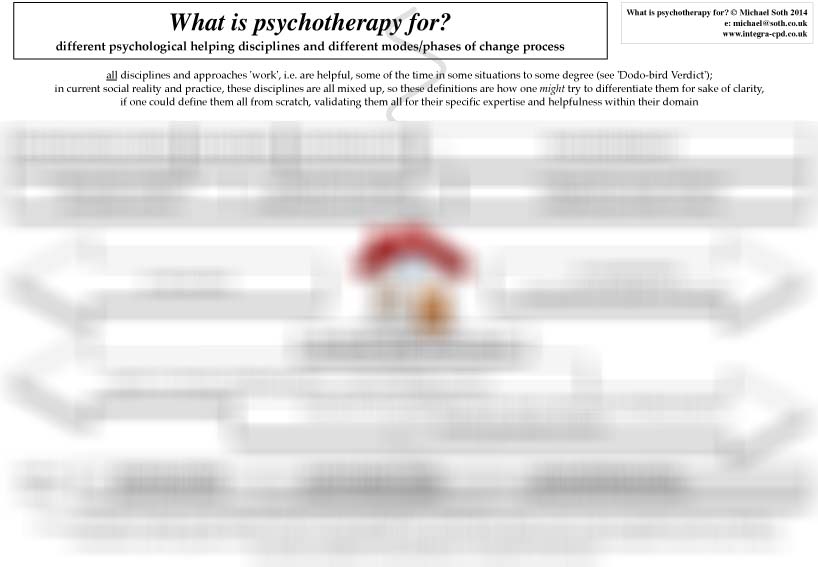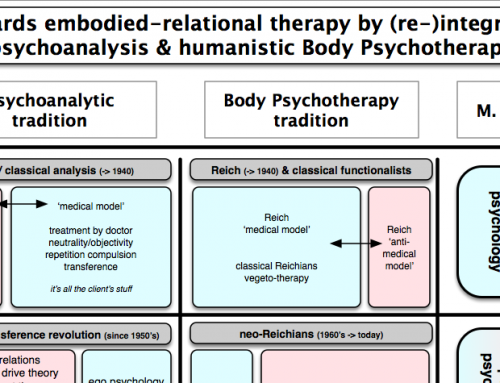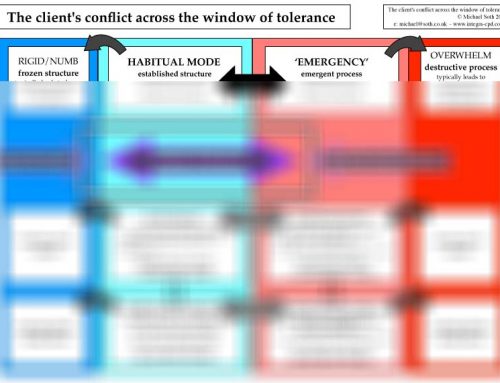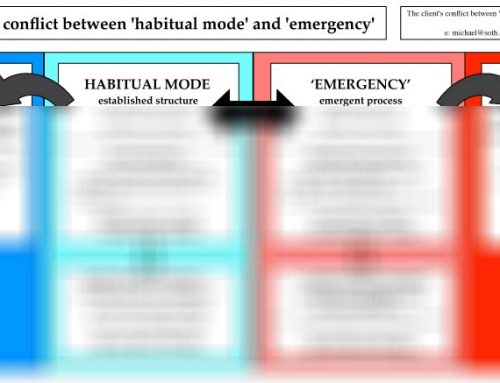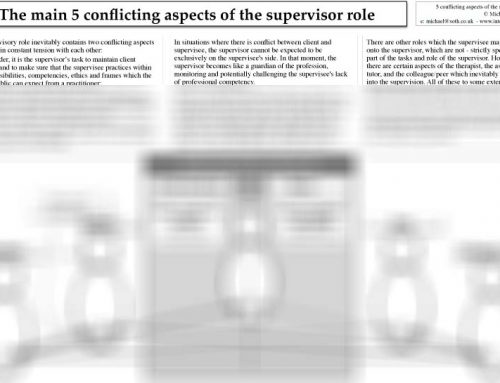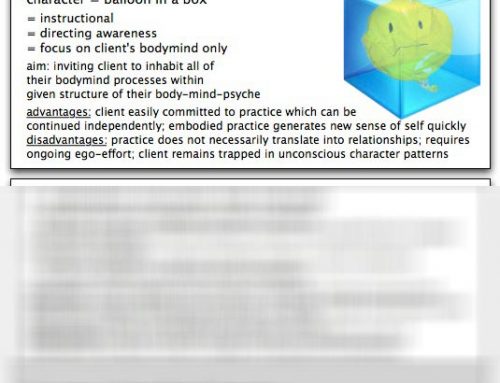Project Description
This handout in response to an interview by Psychotherapy Excellence is an attempt to clarify the question 'What is psychotherapy?' by distinguishing it from other, similar disciplines, like counselling, coaching and psycho-education. In practice, this is impossible, as these disciplines are hopelessly mixed up, after borrowing from each other, cross-fertilising as well as appropriating and belatedly jumping on prior bandwagons for decades. Most practitioners across these disciplines have little idea about the origins of their work, the traditions which the various approaches draw from, the giants on the shoulders of whom we have the benefit of standing. So no clear definition is possible: there are coaches doing therapeutic work, therapists doing counselling, counsellors doing coaching, much of it in an undifferentiated eclectic mix of approaches, which makes it fairly unpredictable for the average client to know what they are actually signing up for. In addition, the former British Association for Counselling - in a clever socio-political coup and with hardly any external consultation - re-branded itself in 2000 to unilaterally incorporate psychotherapy, changing its name and its claim to the British Association for Counselling & Psychotherapy, and calling its flagship journal 'Therapy Today'. If the ordinary public was thoroughly confused before that coup about the possible distinctions between counselling and psychotherapy, they are now positively bewildered (which suits some branches of the field which are seen as more 'accessible' according to polls). So this hand-out is not relating to any of this 'market' reality. Rather, it is trying to propose some possible distinctions if one were to validate all the 'therapeutic' disciplines in a non-partisan way for each providing something valid and essential that serves some people well some of the time. A layperson might well say about each and every one of them that they found it 'helpful' and 'therapeutic'. So together all the disciplines could be considered complementary aspects of a whole package which would require an embracing and comprehensive attitude towards the diverse needs for psychological help which are possible. What are some useful criteria and categories for thinking about these different needs? I am suggesting a possible clarifying definition of the various disciplines based on whether they work within the client's established personality structure, against as well as within that personality structure, or within, against and beyond that structure. We can use the metaphor of a house, and whether we are attempting a re-decoration job or a re-construction (which always needs to involve re-decoration as well). According to that definition, psychotherapy would need to both transcend (i.e. go beyond) counselling as well as include it, as well as coaching and psycho-education. So the tricky thing here is that I am not defining them as peers, next to each other, but more like Russian dolls, one containing and incorporating the other. The downside of that is that people inevitably turn that into a hierarchy of 'better' and 'worse' and 'superior' and 'inferior', which is not at all an implied or necessary consequence: why go and pay a builder for a re-construction job when all you need is a lick of paint in the living room? Yes, the builder would have to know how to paint as well as build walls and knock out windows, but that does not mean the builder is 'better' at painting. Conversely, you would not go and pay a painter for knocking through a wall which may endanger the stability of the whole house. This leads to a comprehensive vision of different stages, phases and modes of change in the bigger, evolutionary scheme of things: years ago Wilber had proposed a distinction between 'translation' and 'transformation', based on the same criterion as (change within the established structure versus change of the established structure) - I am adding a third: 'contradiction: change against the established structure. Wilber's terms are meant to apply to all kinds of systems, not just people, and certainly not just people's psychology. But the closer we follow psychological process, the more we realise that a lot of therapeutic effort is expended fighting against established habitual patterns (which is not a bad thing, unless it is a blind effort denying the need for transformation as well as contradiction). These three modes of change are like different universes where different laws and principles apply: what ‘works’ in translation, stops ‘working’ in contradiction, and is opposite to what ‘works’ in transformation. The same is true for transformation and translation: what ‘works’ in one is profoundly unhelpful, counterproductive or dangerous in the other.
To gain access to the full resource, please log-in if you are a member already (and then re-fresh this page after log-in), or to become a member of the site register here (it's free).

